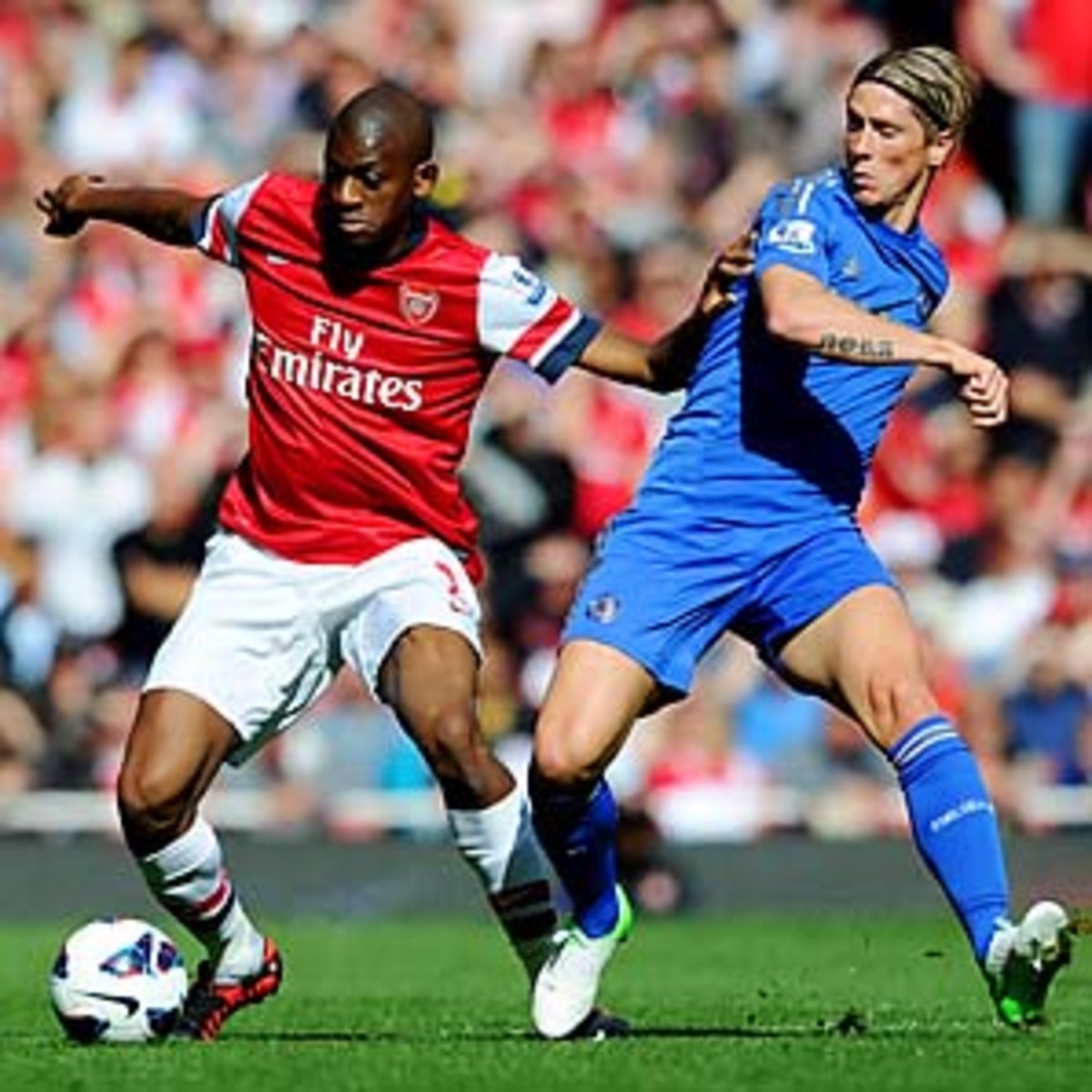Inconsistent Arsenal still lacks 'moral courage' despite changes
Beyond all tactics, beyond all technical ability, beyond motivation and passion, there is a quality of being able to win, of gamecraft. It's hard to define: a toughness, a ruthlessness, a canniness; Brian Clough called it "moral courage." It's a quality that means you take chances when they matter most, that means you don't concede soft goals, that means you stand strong in the face of pressure, that you kill games when you need to. It's the thing that makes you win even games, or games in which the opponent has the edge. Arsenal doesn't have it, and they probably haven't had it since Patrick Vieira left the club in 2005.
The arrival of Steve Bould, part of the fabled Arsenal back four of the 1990s, as Arsene Wenger's No. 2 seemed to have stiffened defensive sinews. There have been notable shifts. The obsession with the high offside line has gone -- a high offside line is not in itself good or bad, but Arsenal was a side that seemed to get caught by simple through-balls again and again; the deeper line is more secure. With Andrei Arshavin and Theo Walcott out of the side, the defending from the front has improved: Lukas Podolski, Alex Oxlade-Chamberlain, Aaron Ramsey and Gervinho are all good at checking the opposing fullback, or at least tracking them when they do advance. The return of Abou Diaby to the midfield has added bite, and the shape seems more natural. Podolski and Olivier Giroud have added aerial strength not merely in attack but also at the back; especially in the draw at Stoke when Arsenal wasn't bullied as it has been in recent seasons.
It kept clean sheets in its first three league games of the season. It conceded against Southampton in the fourth when goalkeeper Wojciech Szczesny dropped a cross, but because it won 6-1 it didn't particularly matter. Away to Manchester City, another ground where it has struggled recently, it played well and came away with a draw but only after falling behind to a soft goal, Joleon Lescott heading in from a corner. The blame, many pundits insisted, was zonal marking, that great bête noire of the English game. It's a bizarre hang-up: nobody ever blames the concept of man-to-man marking when it goes wrong. What happened was that Podolski got caught under the ball which meant Lescott had momentum as he attacked it; Podolski should have stepped off two or three paces as the corner came over and then he, too, would have been moving into the ball -- that's an individual error, not one of system.
Set plays undid Arsenal in Saturday's loss to Chelsea as well. The marking structure was upset by the thigh injury to Diaby that forced him off to be replaced by Oxlade-Chamberlain. that in part explains why David Luiz ran on unmarked and only just failed to reach Juan Mata's delivery from a free kick on the right. Perhaps that distracted Laurent Koscielny --although it's really no excuse -- but he was weak in allowing Fernando Torres to hook a leg around him to score. Again it wasn't a question of the structure being wrong -- Koscielny was in the right place; the issue was that having got there he then failed to react aggressively enough.
The second goal was a touch unfortunate in that it came from a Mata free kick that evaded everybody and crept in the corner, but again there was an issue of aggression. Keiran Gibbs made a vague swing at the ball, and Koscielny half-lunged at it, but neither made decisive contact. Vito Mannone was left hopelessly vulnerable.
There was clear anger in Wenger's voice as he discussed his side's failings. "We gave the game away," he said. "They had three shots on target and scored two goals. Defensively we weren't at the level you need to be. That's why we were punished today. We need to show more personality on the goals we conceded. We didn't attack the ball not on the first goal or on the second. The difference between us and Chelsea at set pieces was obvious. When you play at home you do not concede two set pieces. It puts us on the back foot. It's impossible. You have to take all the risks and you leave yourself open to counter attacks."
The obvious question was raised: why had he not picked Per Mertesacker, who has been excellent so far this season? Wenger replied that he'd picked his defense according to the opposition; his logic, presumably was that the threat offered by Torres is his pace and movement rather than anything physical and that therefore Mertesacker, big, strong and occasionally lumbering, might be exposed. His conviction in defending set plays, though, would have been a great help.
Perhaps, under Bould's tutelage, Arsenal will discover the necessary personality, but the fact is that after seven years of failure, seven years of conceding soft goals and missing chances, it's hard to envision Arsenal having the consistency to win a league title. The Champions League is different -- it's as much about being in good form at the right times as being the best side over a season -- but for all Arsenal makes a habit of racking up big scores at home in the group stages, and it wouldn't be a surprise to see it beat Olympiakos comfortably Tuesday, it's hard to imagine how a team so lacking in gamecraft could ever hold out as, say, Chelsea did at times last season.





